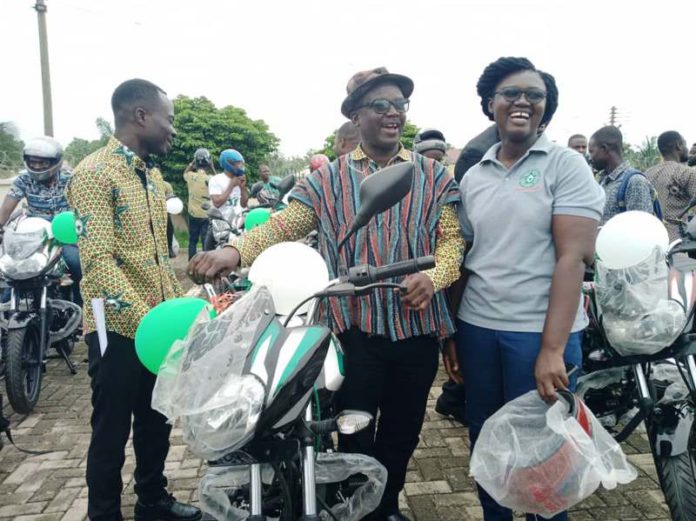The Ghana Registered Nurses and Midwives Association (GRNMA) has reiterated the need for the government to implement rural incentive packages for health workers in underserved areas of the country.
The Ashanti regional president of the association, Jones Afriyie Anto, says the government has accepted the proposal but has yet to start implementation.
The Association, as part of measures to support the call, presented 43 motorbikes to some members in remote areas of Ashanti region for efficient health delivery.
The 43 motor-bikes serve as incentives to health workers in remote areas of Ashanti region for effective healthcare delivery.
The Ashanti regional president of the Ghana Registered Nurses and Midwives Association, Jones Afriyie Anto, wants the government to implement the rural incentive packages for health workers working in underserved areas of the country.
This is to help attract and retain critical health staff in deprived and remote regions and communities, to render quality health services to the people.
According to Jones, the Association is negotiating for conditions of service this year and wants to prioritize the implementation of the rural incentive package.
“We are negotiating for conditions of service this year, and one of outstanding issues at last negotiations is the rural incentive allowance pending implementation. I think 20 percent for health workers working in rural areas is better to attract others, the government acknowledges the fact that promotions for such health workers are heeded to but the main point is money,” he suggested.
The Association said the constant refusal of critical health staff and others requesting for transfer should send a strong signal to the government to start implementation.
He commended the government for the construction of health facilities in remote areas of the country but fears such facilities will be understaffed.
He said the presentation of the motorbikes shows the Association’s commitment to quality healthcare delivery.
Some beneficiaries of the motorbikes say it will ease their burden and make them efficient at work.
“There are areas cars don’t go there, we walk to these areas to deliver healthcare so with these motorbikes we can be visiting them regularly,” they said.

